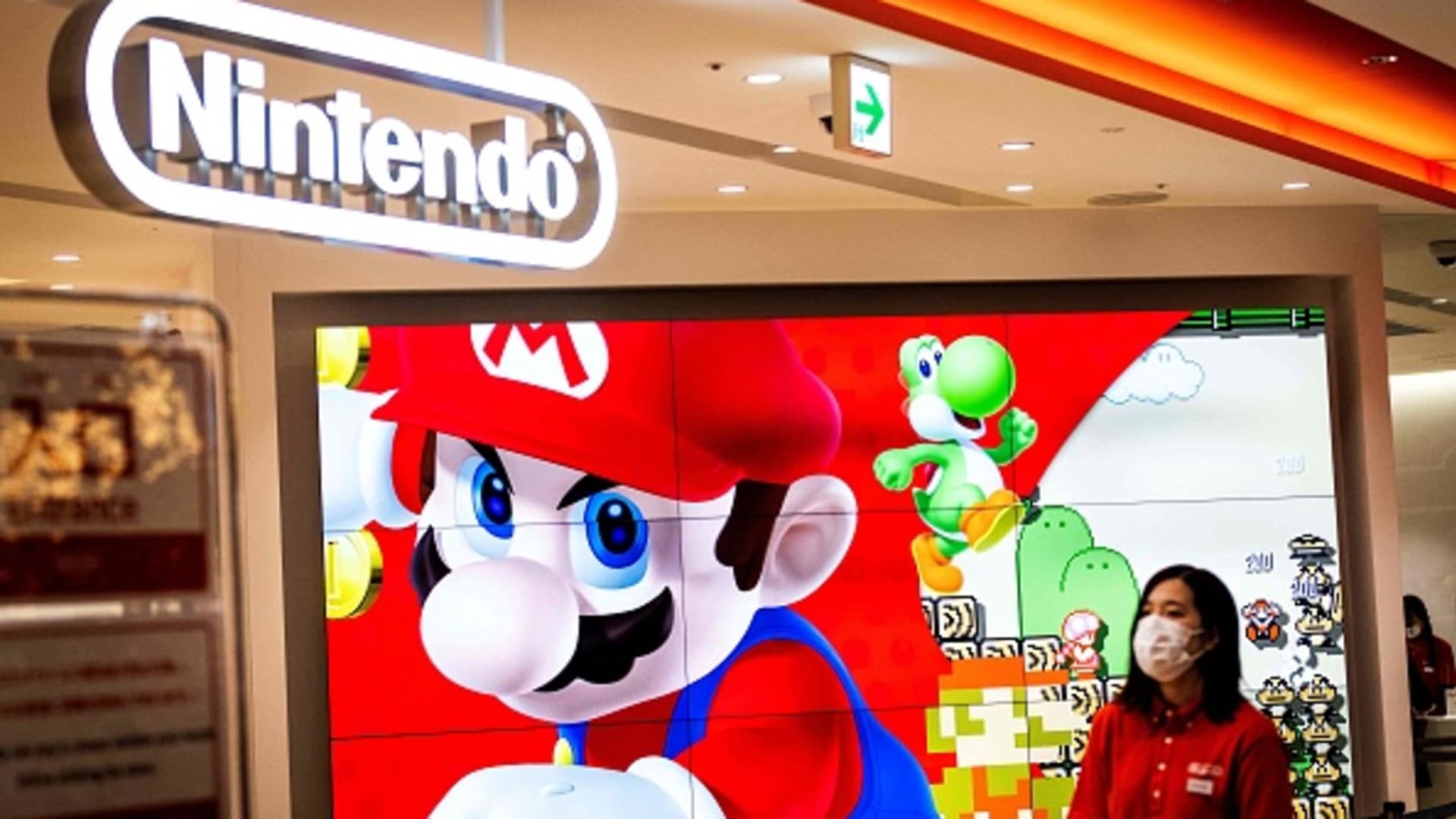
Nintendo announced a 10-for-1 stock split on Tuesday as the Japanese gaming giant aims to make its shares more appealing to retail investors.
Shareholders have been calling for a stock split for some time to boost the liquidity of the gaming giant’s shares. The move will take effect on Oct. 1 this year, when each share of common stock will be split into 10 shares.
A number of major tech firms, including Apple and Amazon, have announced stock splits over the past few years. They do not fundamentally change the company in any way, but do make a single share cheaper which could make them more attractive to retail investors.
Stocks splits are usually positive for a company’s share price. Nintendo shares are up 5% year-to-date despite other major technology companies losing billions of dollars of value this year amid a sharp sell-off of risk assets.
The Kyoto-headquartered company also announced plans to buy back 56.36 billion Japanese yen ($432.9 million) worth of shares. The transaction will take place on Wednesday.
Supply chain pressures hit Switch sales
Nintendo’s surprise stock split announcement came as it reported earnings for its fiscal year ended Mar. 31. Revenue totalled 1.69 trillion Japanese yen, down 3.6% year-on-year. Net profit dropped 0.6% to 477.6 billion yen.
Part of that weakness is due to a fall in Switch sales, despite the company launching a new OLED (organic light-emitting diode) model during the fiscal year. Sales of the console range totaled 23.06 million units last financial year, down from 28.83 million in the previous 12 months.
Nintendo said Switch sales were “affected by shortages of semiconductor components and other parts.”
The Japanese giant forecast sales of 21 million units of the Switch in the current fiscal year which ends in March 2023. That’s a 9% year-on-year fall.
Nintendo warned that if Covid-19 restrictions interfere with production or transportation, it could impact the supply of products. The company also said that production of products might continue to be affected by difficulty in procuring parts such as semiconductors.
Game sales remain strong
Despite a fall in Switch sales, console players continued buying Nintendo’s games. Software sales increased 1.8% over the last fiscal year, driven by demand for popular games including “Pokemon Legends: Arceus” and “Mario Kart 8 Deluxe.”
Nintendo said that it now has 100 million annual playing users. The Japanese giant has a strong portfolio of recognized characters and games that it has been able to capitalize on over its history. Meanwhile, Sony and Microsoft have tried to build up their so-called first-party games by acquiring game production companies or setting up their own studios.
In January, Microsoft announced plans to buy Activision Blizzard for $68.7 billion, while Sony agreed to acquire video game maker Bungie for $3.6 billion.
Nintendo has a strong pipeline of upcoming games including “Nintendo Switch Sports,” but said it expects to shift 210 million units of software in the year to the end of March 2023, a 10.7% year-on-year decline.
However, one analyst thinks Nintendo’s guidance is too conservative. Serkan Toto, CEO of Tokyo, Japan-based consultancy Kantan Games, said the fall in software revenue makes his “mind boggle.”
“We are just a few weeks into the fiscal [year], and Nintendo’s first party game pipeline already includes eight titles. They just launched ‘Switch Sports’, ‘Splatoon 3’ is coming in September and will be followed by a new open world Pokémon game. The hardware install base will also rise,” Toto told CNBC.
“Why on earth are they predicting a reduction in terms of software? It makes no sense.”




